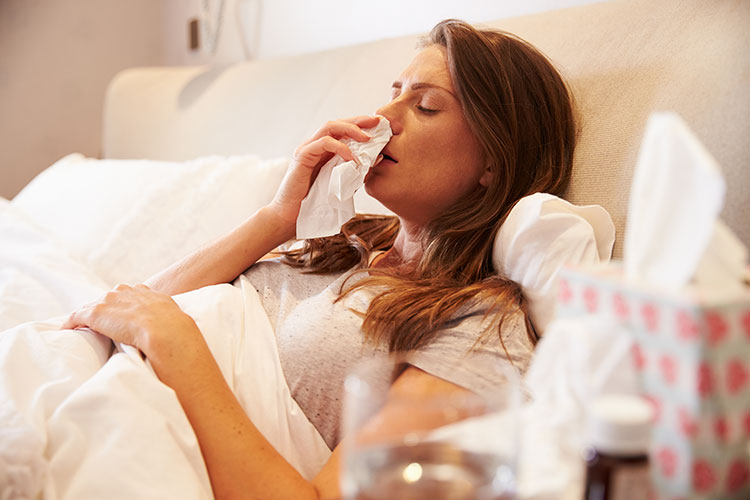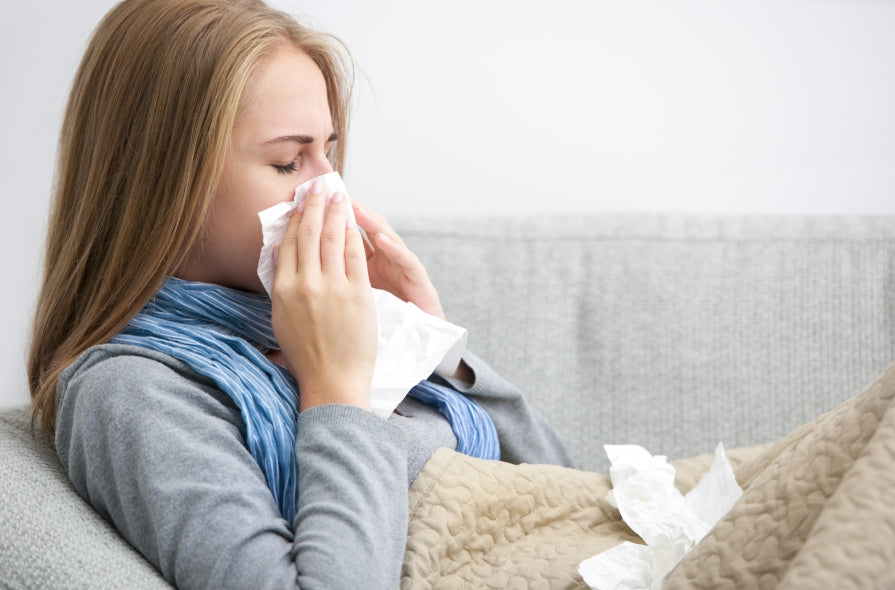News
Sleep and Seasonal Allergies
wp:paragraph If you are starting to wake up feeling a little stuffed up these days, you are not alone. Allergies are extremely common in the early spring months and this can greatly affect your sleep cycle. /wp:paragraph wp:paragraph Why are my allergies affecting how I sleep at night? /wp:paragraph wp:paragraph Many people experience seasonal allergies and/or flu like symptoms at this time of year thanks to significant changes in air pressure and the weather. This can affect your sleeping patterns in a big way, especially if you have sleep apnea and/or use a CPAP machine at night. Some people experience common cold symptoms such as headaches, sinus congestion or sore throat, that most often occurs in the morning, right as you wake up. Others (especially those with sleep apnea) may have a lot of nasal congestion at night that is making it difficult to sleep and causing insomnia. /wp:paragraph wp:paragraph With all of that said, having an “off” sleeping night for one night or more can affect how you function during the daytime and doing nothing will only make it worse. /wp:paragraph wp:paragraph How can I sleep better with allergies? /wp:paragraph wp:paragraph Dealing with seasonal allergies that affect your sleep can be unpleasant, however there are ways to help you to alleviate this: /wp:paragraph wp:list Try taking an over-the-counter antihistamine (such as Benadryl or Claritin) before you go to bed to help you sleep better. If you wake up with allergy symptoms then you can take one in the morning as well if needed (just be sure to use a non-drowsy formula!) Don’t stray away from practicing good sleep hygiene. Stick to the same bedtime every night and stick to healthy diet and exercise routines during the daytime. Keep your bedroom cool and use a humidifier if necessary to help alleviate excessive dryness in the air. Check out this HumidX F20 humidifier - PAPSmart Canada If you use a CPAP machine, don’t skip the use of your machine for one night, even if you are feeling unwell. It is more important now than ever to keep up with your CPAP therapy. You may even want to consider giving your machine an extra cleaning to better help you sleep at night Be sure to seek advice from your doctor if the problem persists. /wp:list
about Sleep and Seasonal AllergiesCPAP Survival During Allergy Season
For many people, the of spring signals new beginnings, growth – and the onset of allergy season. And if you have sleep apnea, then you could be dreading this season. However, there are a number of ways you can reduce some of the allergy symptoms that can affect your sleep apnea treatment. The nature of your allergy symptoms depends on where you live and your lifestyle. For example, everyday outdoor pollutants include city smog, car exhaust, dirt, pollen, newly mown grass, and industrial chemicals. Inside, perfumes, animal dander, dust, mold, cigarette smoke, and the fumes from chemical cleaners can affect you too. Outdoors and indoors – is there any help for your sleep apnea? Yes! Here are the top tips that can help your CPAP use even when you have spring allergies. Spring cleaning: After a winter huddled inside, it’s time to clean! Do extensive vacuuming and dusting, making sure to get under couches, on window ledges, and in little nooks and crannies you may forget about. Wear a mask to keep from breathing in the pollutants. Keep the outdoors outdoors: Fresh air is wonderful, but that air can also bring pollen indoors. At night, close your windows. During the day, avoid being outside if it is really windy, and dry your clothes in the dryer instead of using a clothes line. Minus the sinus: It is almost impossible to avoid breathing in pollen and other pollutants. If you get sinus congestion, apply a menthol rub at night, and consider using a saline rinse to flush out your nasal passages. Sleep tight: To help you get a good night’s sleep, keep your windows closed, wash your face, hair, and hands before bed to remove pollutants, and change your sheets and pillowcases frequently so that you don’t breathe in pollen when you slumber. Tip top CPAP: Finally, to keep your CPAP machine working well during the spring, it too needs some spring cleaning. Clean out your mask, tubes, and humidifier (if you have one), and replace your filter regularly. Not sure where to start? Explore All CPAP Products and Collections to find everything you need for better sleep therapy.
about CPAP Survival During Allergy Season
